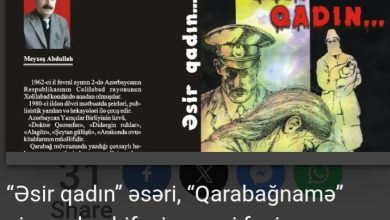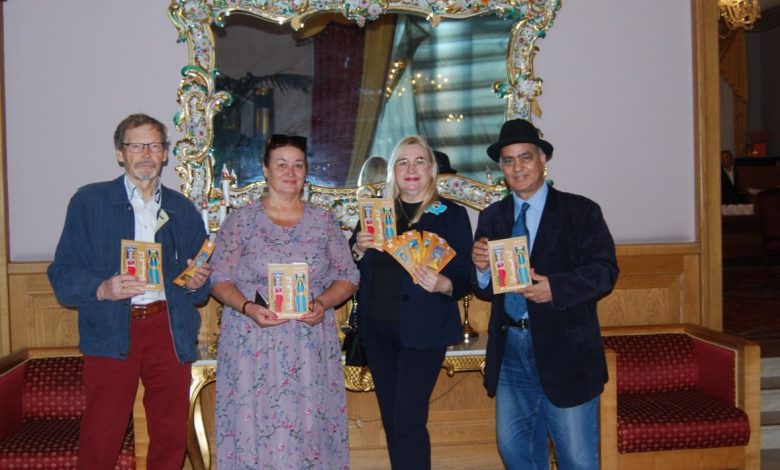
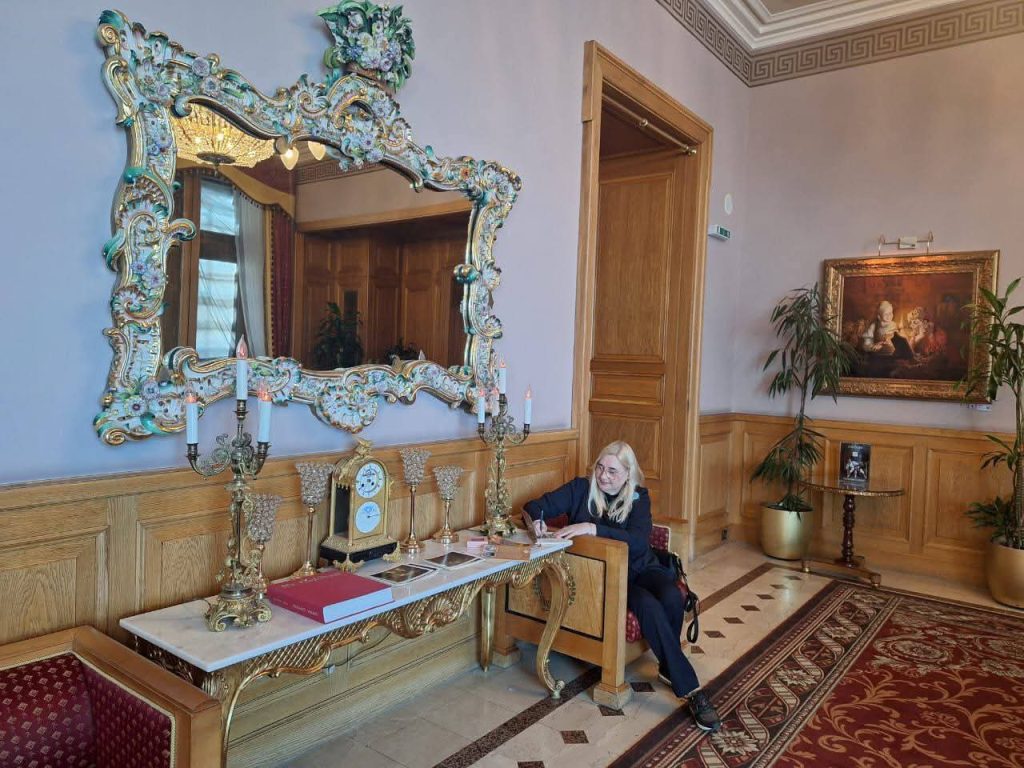 A month ago, on Wednesday, September 3, 2025, the Silk Road Literature Series opened a new chapter in its global journey with the Three Continents Creative Meeting — a luminous hour of shared imagination that spanned time zones and tongues. Six authors from three continents gathered online, their voices woven together by the Egyptian poet and novelist Ashraf Aboul-Yazid, who had translated each of their works into Arabic.
A month ago, on Wednesday, September 3, 2025, the Silk Road Literature Series opened a new chapter in its global journey with the Three Continents Creative Meeting — a luminous hour of shared imagination that spanned time zones and tongues. Six authors from three continents gathered online, their voices woven together by the Egyptian poet and novelist Ashraf Aboul-Yazid, who had translated each of their works into Arabic.
From Russia, Inna Nacharova took the virtual stage to present her book I, Cleopatra — a spellbinding blend of history and poetic fantasy, brought to life by her own delicate miniature paintings of the Egyptian queen. Despite a few technical hurdles that redirected the exchange through a humble WhatsApp call, the spirit of connection never faltered. The host, Aboul-Yazid, displayed the author’s intricate illustrations, each shimmering with the mystique of the Nile and the timeless allure of Cleopatra.
Later, the story found a beautiful echo in Moscow, where the translator himself arrived bearing copies of the newly published Arabic edition. There, amid the city’s autumn calm, Inna Vladimirovna Nacharova received her books — a bridge between cultures, bound in paper yet alive with the shared pulse of art and translation.
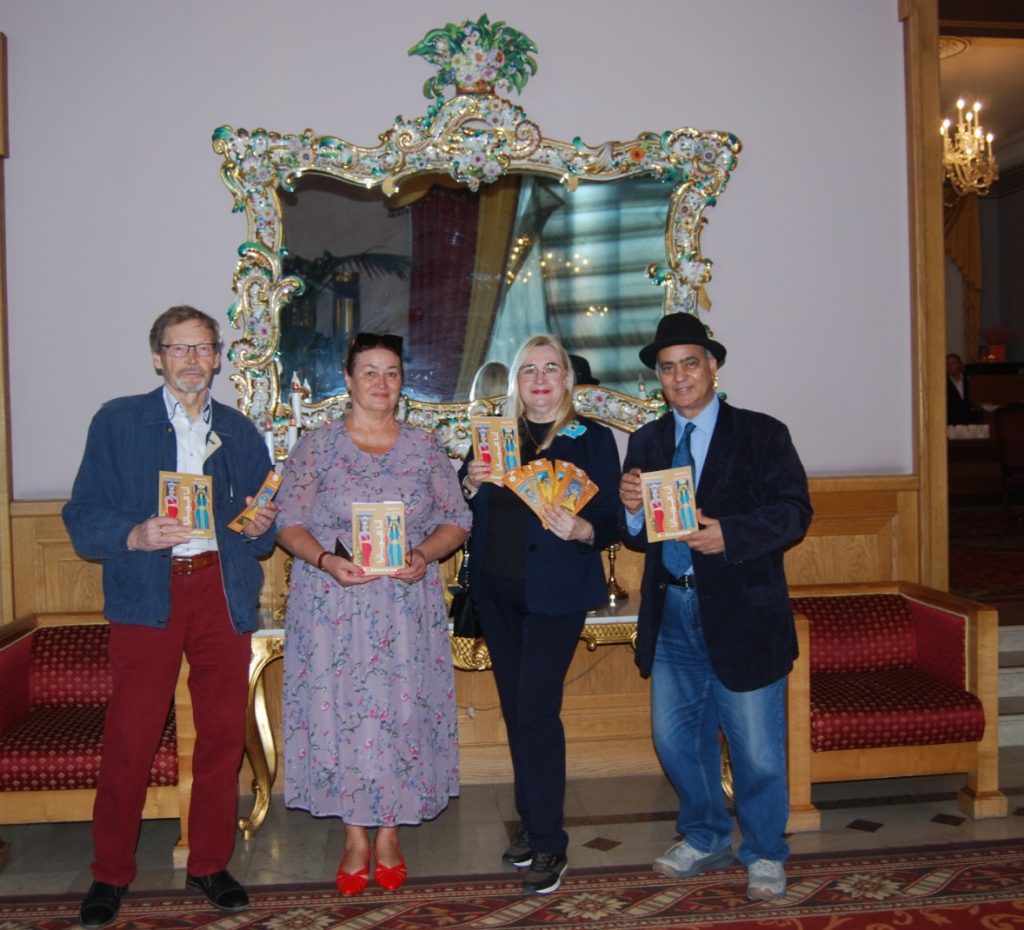 The event, which brought together both the author and her translator, was graced by the presence of two distinguished literary figures: Khalida Akhmedzhanova, Member of the Union of Journalists of Russia and Head of the Public Organization Women of Crimea, and Dr. Victor Klykov, the Russian-Austrian poet, President of the club Russian Poetry in Austria, and Member of the Austrian Centre of PEN International. Their attendance lent the occasion an added depth of cultural resonance and international friendship.
The event, which brought together both the author and her translator, was graced by the presence of two distinguished literary figures: Khalida Akhmedzhanova, Member of the Union of Journalists of Russia and Head of the Public Organization Women of Crimea, and Dr. Victor Klykov, the Russian-Austrian poet, President of the club Russian Poetry in Austria, and Member of the Austrian Centre of PEN International. Their attendance lent the occasion an added depth of cultural resonance and international friendship.
Commenting on this special moments, Inna Nacharova said:
The fate of my book I, Cleopatra is truly remarkable. It was translated into Arabic and published in the land of the pyramids — in the homeland of Egypt’s divine queen, Cleopatra. All this happened thanks to a man whose tireless literary work knows no borders — my deep gratitude goes to Mr. Ashraf Aboul-Yazid from Cairo.
For centuries, Cleopatra has stirred the minds and souls of people around the world. The great Russian poet Alexander Sergeyevich Pushkin wrote a poem about her. And quite recently, as part of a new creative project of the International Association of Writers “Commonwealth”, we launched a flash mob called “Reading Shakespeare with the Whole World.” I chose for myself the monologue of Calpurnia, the wife of Julius Caesar, from Shakespeare’s play Julius Caesar. When I began to read it, I suddenly realized that, at those very words, Cleopatra herself might have been sailing down the Tiber River, returning from Rome to Egypt — away from Caesar. I think she and Calpurnia may have met on the eve of that departure. With her was her son by Caesar — Caesarian, whom the great commander never acknowledged, despite having no children with Calpurnia. And then it struck me: he did not love Cleopatra as deeply as she loved him.
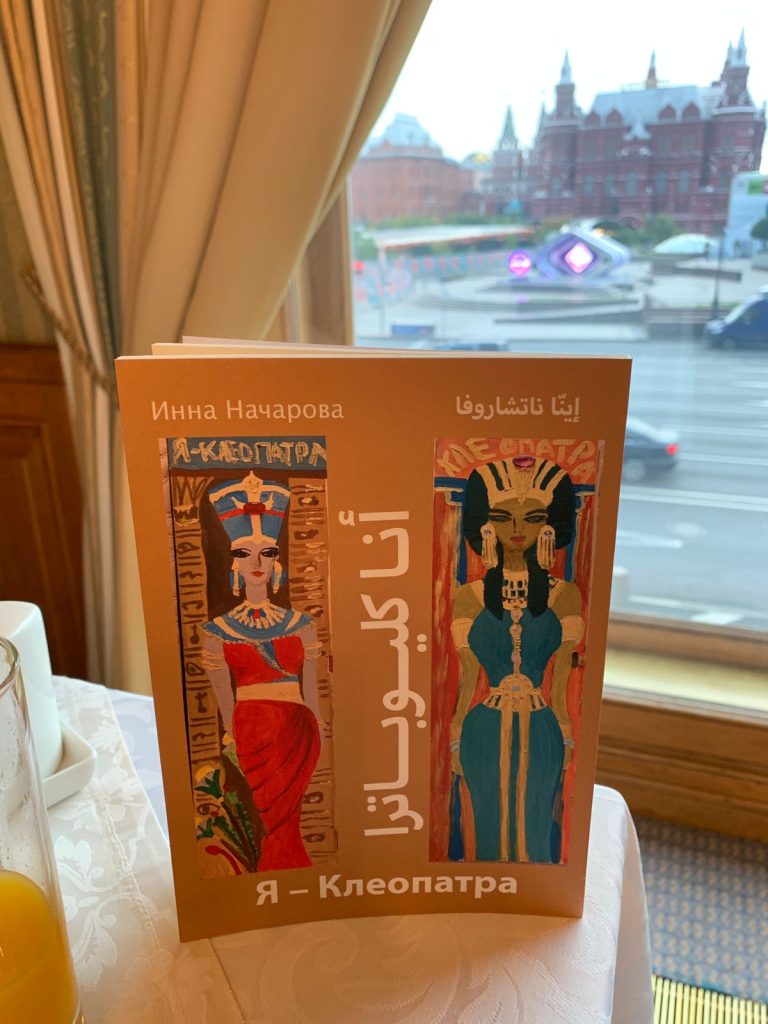 In my book, the divine queen of Egypt, Cleopatra, saves herself and her children — in her own way. She loves, is disappointed, struggles, invents, and hopes — like each of us. What emerged is a diary-like story of a woman who lived a difficult life. A mother of four and a queen upon an enviable throne, she stood alone among men — generals, senators, and philosophers. None of them could forgive her for her beauty and her independence. A familiar story, isn’t it? Centuries pass, yet men and women remain the same.
In my book, the divine queen of Egypt, Cleopatra, saves herself and her children — in her own way. She loves, is disappointed, struggles, invents, and hopes — like each of us. What emerged is a diary-like story of a woman who lived a difficult life. A mother of four and a queen upon an enviable throne, she stood alone among men — generals, senators, and philosophers. None of them could forgive her for her beauty and her independence. A familiar story, isn’t it? Centuries pass, yet men and women remain the same.
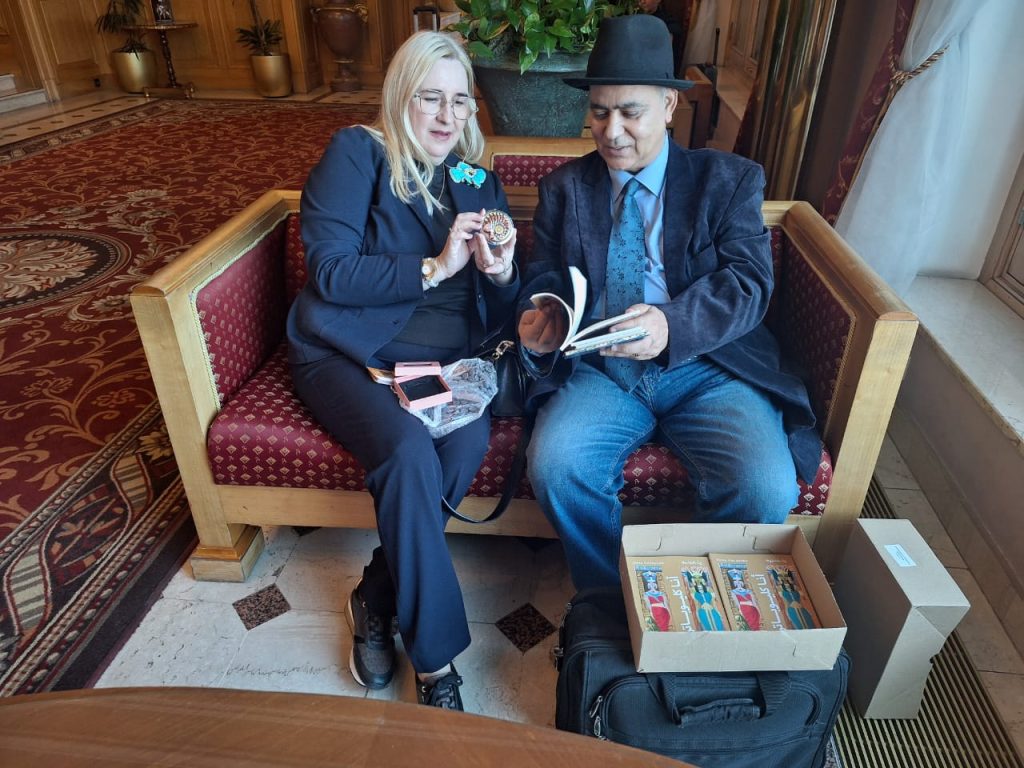 And so, on the eve of my birthday, my book I, Cleopatra, in Russian and Arabic, arrived in Moscow — straight from the homeland of the divine queen of Egypt. Miracles do happen, and they happen through people. Mr. Ashraf Aboul-Yazid personally brought and presented me with the author’s copies of the book, published in Cairo. The edition turned out beautifully — almost magical. With my own illustrations, it was printed on paper reminiscent of ancient papyrus.
And so, on the eve of my birthday, my book I, Cleopatra, in Russian and Arabic, arrived in Moscow — straight from the homeland of the divine queen of Egypt. Miracles do happen, and they happen through people. Mr. Ashraf Aboul-Yazid personally brought and presented me with the author’s copies of the book, published in Cairo. The edition turned out beautifully — almost magical. With my own illustrations, it was printed on paper reminiscent of ancient papyrus.
The book’s presentation took place in the historic Hotel National, built in 1903, across from the Moscow Kremlin. Lenin and Nadezhda Krupskaya once lived there, and many world political and cultural figures have stayed within its walls. Once, in the last century, a famous Soviet writer, leaving the hotel restaurant, mistook a man in uniform for a doorman and said: “Doorman, get me a taxi!” The man replied, “I’m not a doorman, I’m an admiral!” To which the writer, true to his wit, answered: “An admiral? Then bring me a cruiser!”
The translator and publisher of my book, Mr. Ashraf Aboul-Yazid, is also the Secretary General of the Congress of African Journalists (CAJ) and the Vice-President of Pan-African Writers Association (PAWA).. Receiving my author’s copies from his hands was deeply moving. I thank Khalida Akhmedzhanova, Chair of the Women’s Society of the Republic of Crimea, for her kind words and wishes.
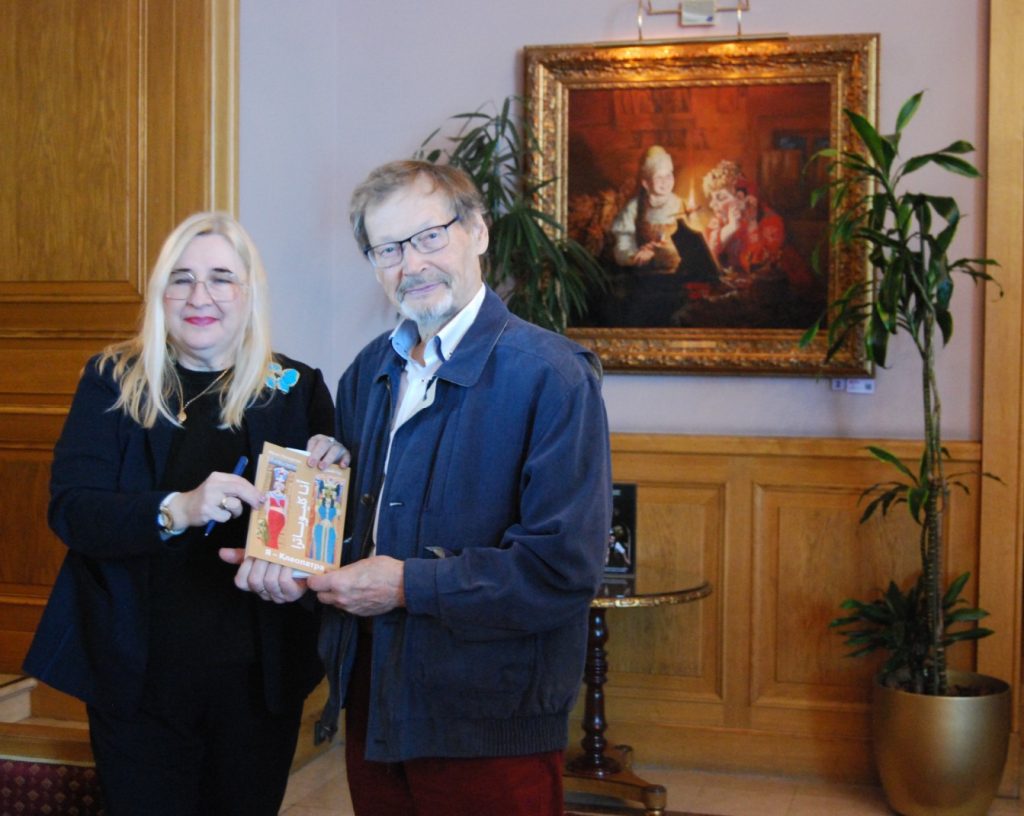
Dr. Victor Klykov, the Russian-Austrian poet and the Chairman of the Union of Russian-speaking Poets of Austria was sincerely happy about my new book. The presentation concluded with an autograph session, and then the book set out into the world to win readers’ hearts.
If Caesar had not burned the Library of Alexandria for Cleopatra’s sake, my book might have found a home among its shelves — but alas, Caesar changed the fate of many things, including mine. Yet now, my I, Cleopatra lives on in the collections of Cairo’s oldest library.
The “Silk Road” project became the very path along which my book travels — thanks to its translator and publisher, Mr. Ashraf Aboul-Yazid.
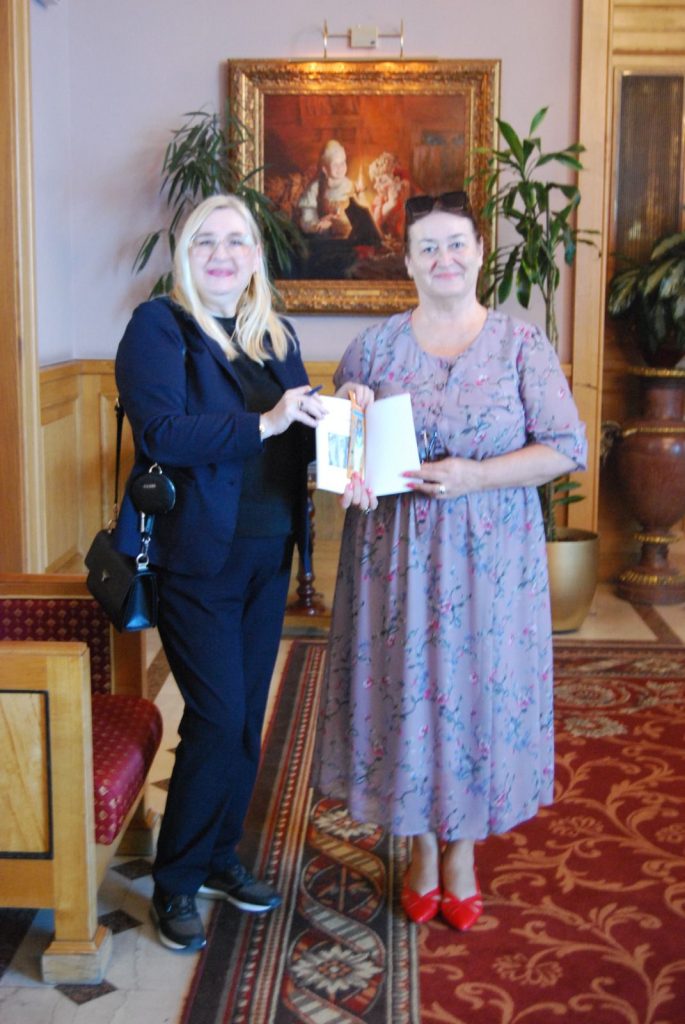 In her word, Khalida Akhmedzhanova said that: “Participation in the work of the First World Public Assembly brought me many interesting and unexpected encounters and acquaintances.
In her word, Khalida Akhmedzhanova said that: “Participation in the work of the First World Public Assembly brought me many interesting and unexpected encounters and acquaintances.
In Moscow, at the Hotel National, two remarkable events happened at once: I met and became acquainted with two presidents.
I met Inna Nacharova, President of the International Association of Writers Commonwealth, and I was introduced to Ashraf Dali, President of the Asia Journalists Association.I became a witness to a magical event of international significance. Inna Vladimirovna is a successful writer, and Ashraf Dali is a successful translator. And, as you may have guessed, Ashraf Dali brought from Egypt precious copies of the book I, Cleopatra, translated from Russian into Arabic and published in Egypt.
For the first time in my life, I found myself in the friendly company of writers speaking different languages, understanding each other only through their eyes and smiles. And for the first time in my life, I held in my hands a book personally dedicated to me by its author. Isn’t that pure magic?
What is this book about? Why did Ashraf Dali decide to translate it into Arabic?
This book has a historical character. It describes the life of a great woman — Cleopatra. Although it is presented as historical literature, telling of Queen Cleopatra and her life, I saw in the heroine features of every one of us. We, women, all strive to be beautiful and charming; we all love to reign in our homes, love our children, and give ourselves to those we love. Such is the nature of woman. To me, Cleopatra is a model of the modern, wonderful woman — with her strong character, determination, and desire to make the world a better place.
This remarkable tandem, aimed at strengthening peace and harmony between the peoples of Russia and Egypt, serves as an example of mutual understanding and respect between the citizens of our two nations, united by one mission — to develop the cultures of their peoples through learning each other’s languages and literatures.”



